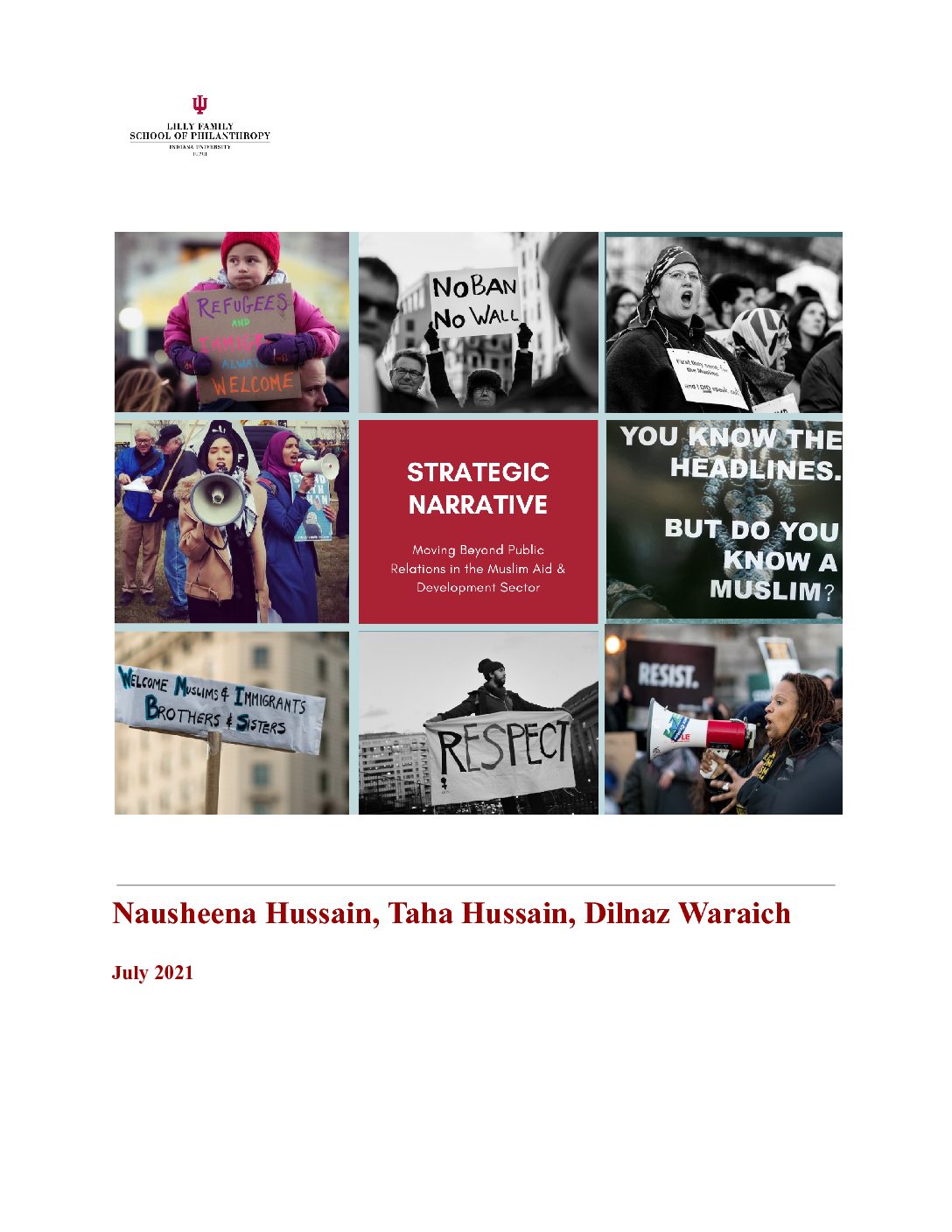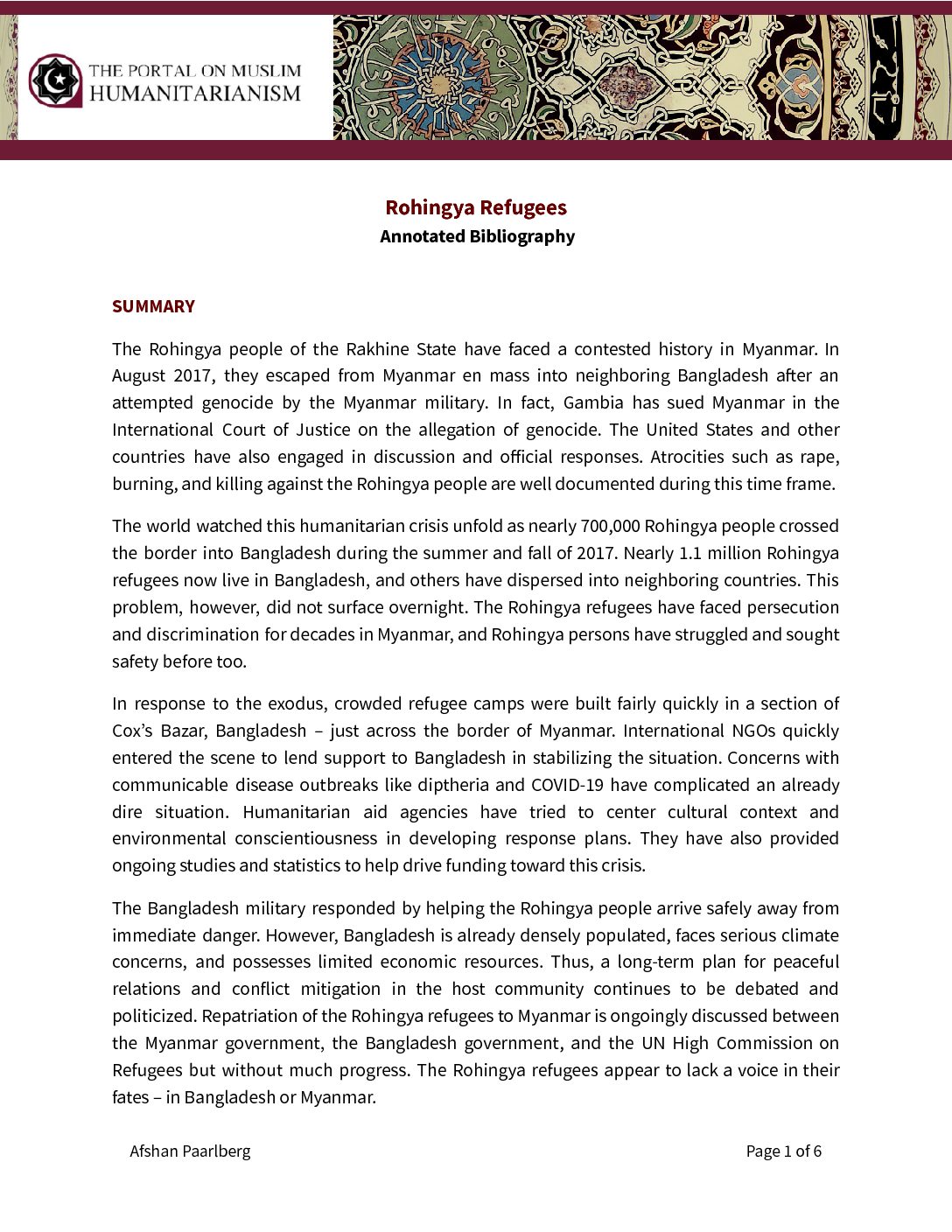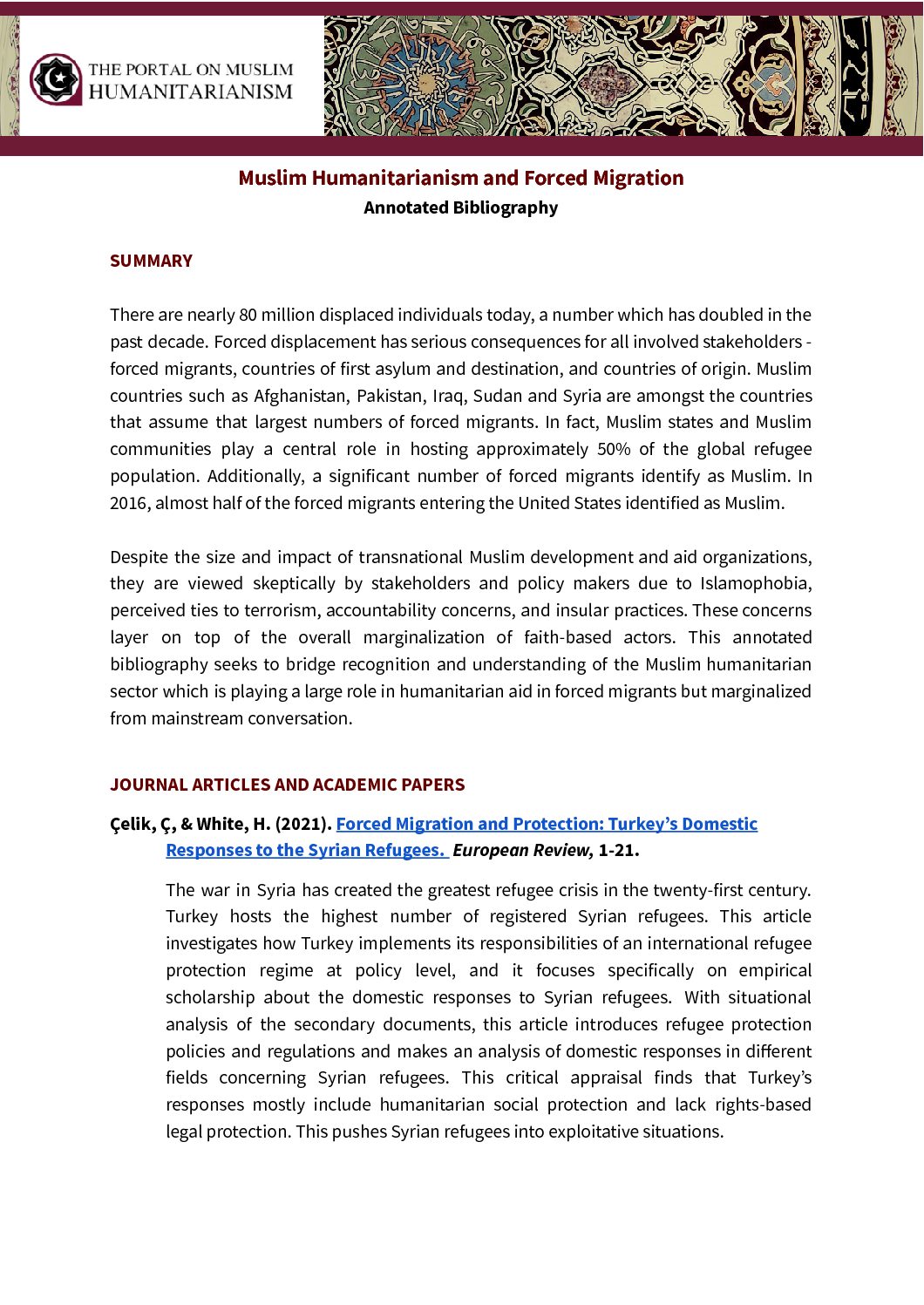ZFI Fellow Research
Muslim humanitarian organizations are working to address a wide variety of problems around the world. The following pieces provide a list of research and writing pertaining to the Muslim humanitarian sector. We hope they can provide context about the history of Muslim humanitarian intervention as well as perspective to guide and inspire future action. These resources have been compiled by graduate students at the IUPUI Lilly Family School of Philanthropy as part of the Zakat Foundation Institute’s Muslim Philanthropic and Humanitarian Studies Fellowship.
Strategic Narrative Policy Brief
Muslim-led organizations are challenged by pervasive forms of anti-Muslim rhetoric and violence. Whether in popular culture, the media or in the political arena, these organizations are often viewed through a lens of suspicion, hateful rhetoric, false perceptions of their ineffectiveness, and are often wrapped in reactive actions such as countering terrorism funding rumors through financial audits. Designing strategic narrative moves Muslim-led organizations from communications and public relations to storytelling, creating a narrative that influences public policy and funding for the sector. Strategic narrative provides a proven way to engage in advocacy work, public policy, and public diplomacy. This policy brief provides recommendations addressing the need to implement a long-term goal of systemic change. It is based upon a landscape analysis and twenty-one interviews that included experts and scholars in the field of strategic narrative, the practitioners of nonprofit organizations, and policymakers. This research was part of the Zakat Foundation Institute fellowship program and summer capstone project at the Indiana University Lilly School of Philanthropy.
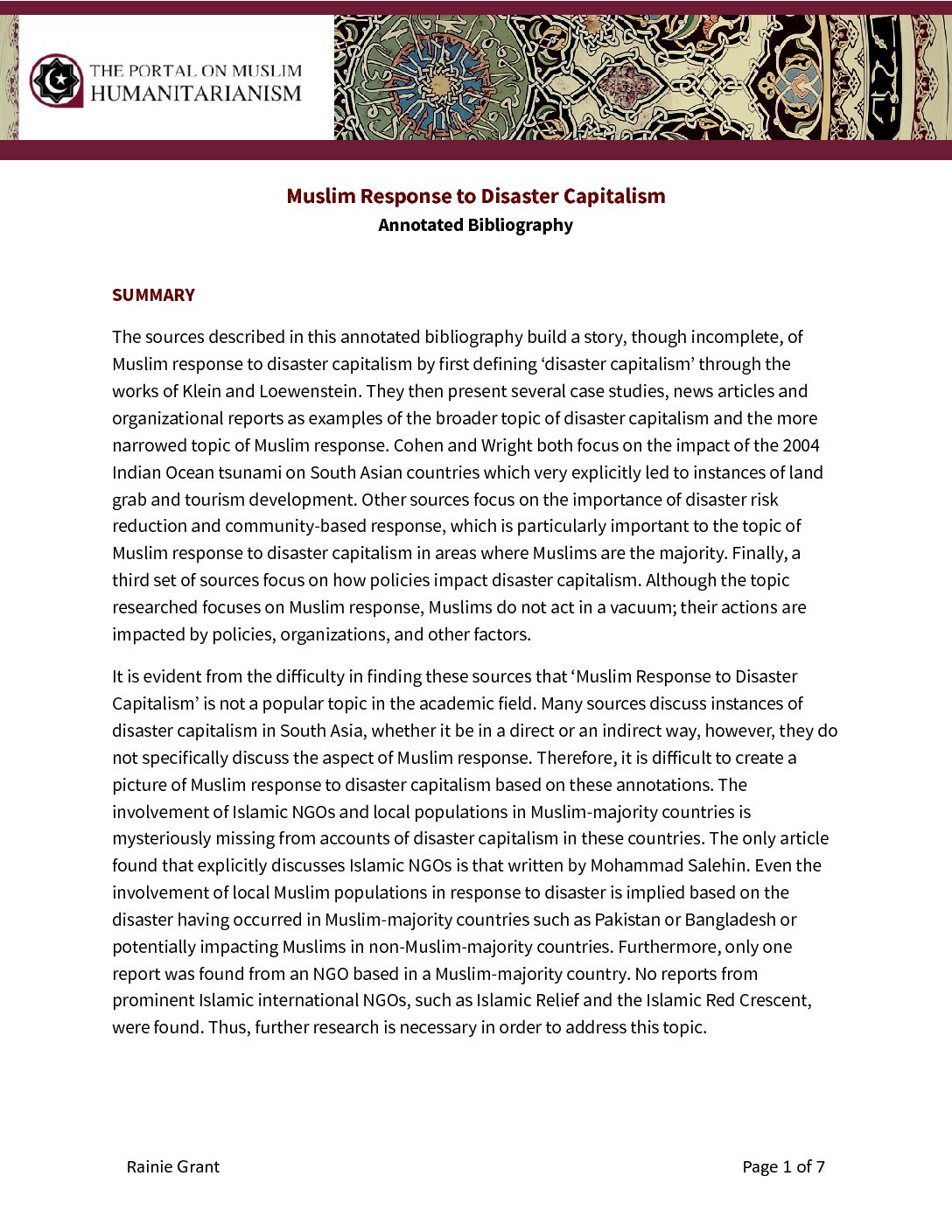
Muslim Response to Disaster Capitalism
The sources described in this annotated bibliography build a story, though incomplete, of Muslim response to disaster capitalism by first defining ‘disaster capitalism’ through the works of Klein and Loewenstein. They then present several case studies, news articles and organizational reports as examples of the broader topic of disaster capitalism and the more narrowed topic of Muslim response.
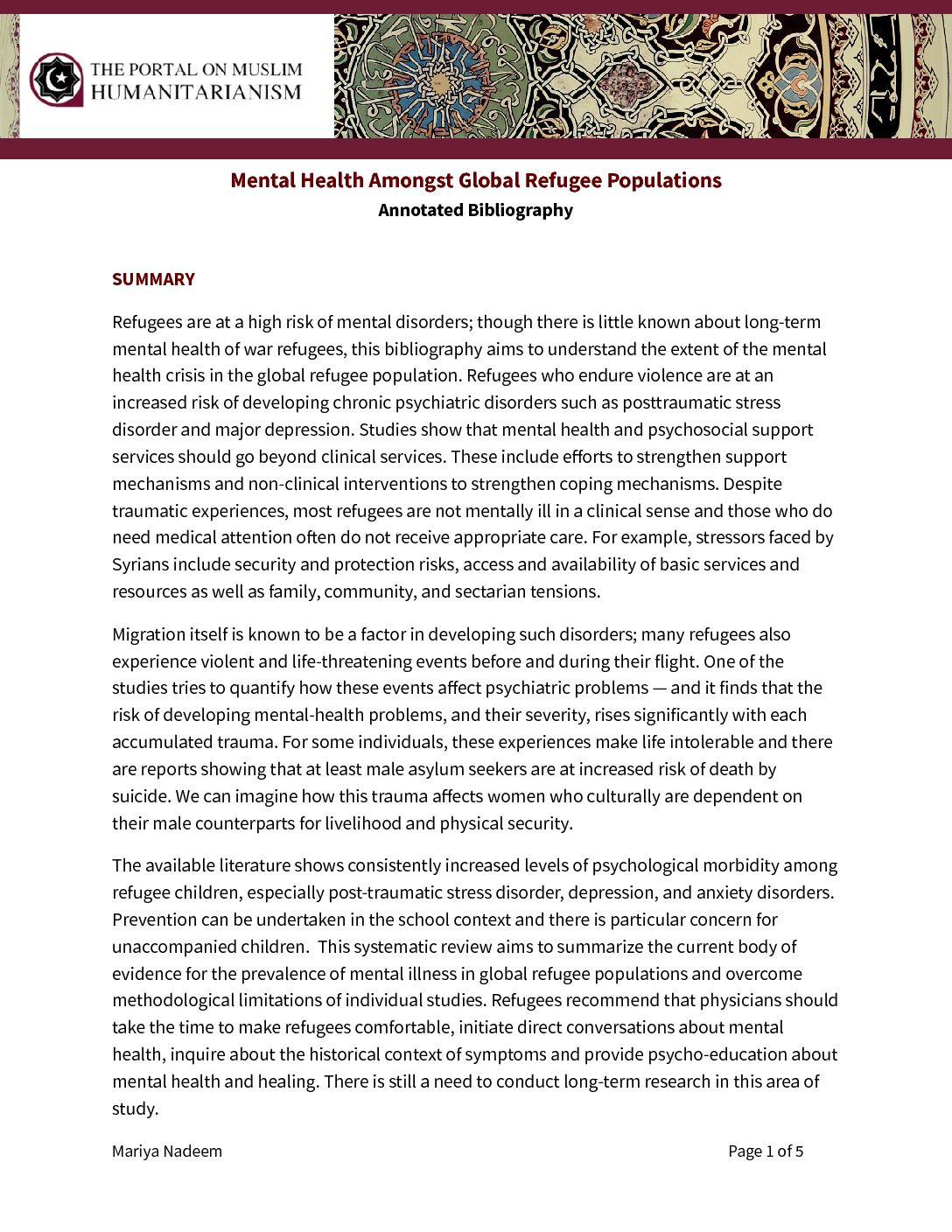
Mental Health Amongst Global Refugee Populations
Though there is little known about long-term mental health of war refugees, this bibliography aims to understand the extent of the mental health crisis in the global refugee population. Refugees who endure violence are at an increased risk of developing chronic psychiatric disorders such as post-traumatic stress disorder and major depression. Studies show that mental health and psychosocial support services should go beyond clinical services. This systematic review also aims to summarize the current body of evidence for the prevalence of mental illness in global refugee populations and overcome methodological limitations of individual studies.
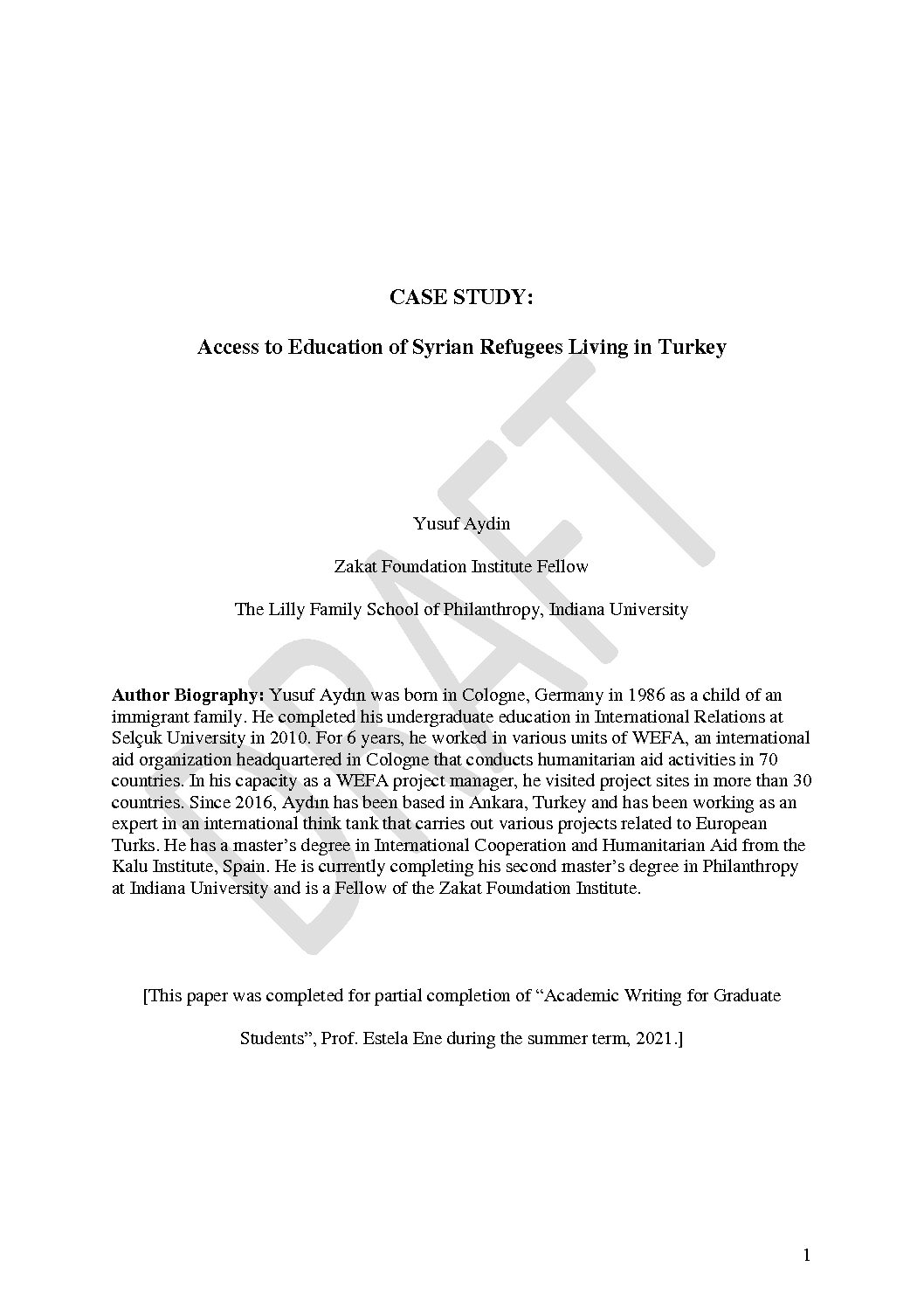
Access to Education of Syrian Refugees Living in Turkey
This paper aims to demonstrate the importance, effectiveness and strategic initiatives of Muslim Humanitarian organizations in the world through exploring the example of the projects and activities achieved in Syria by a successful Relief foundation from Turkey.
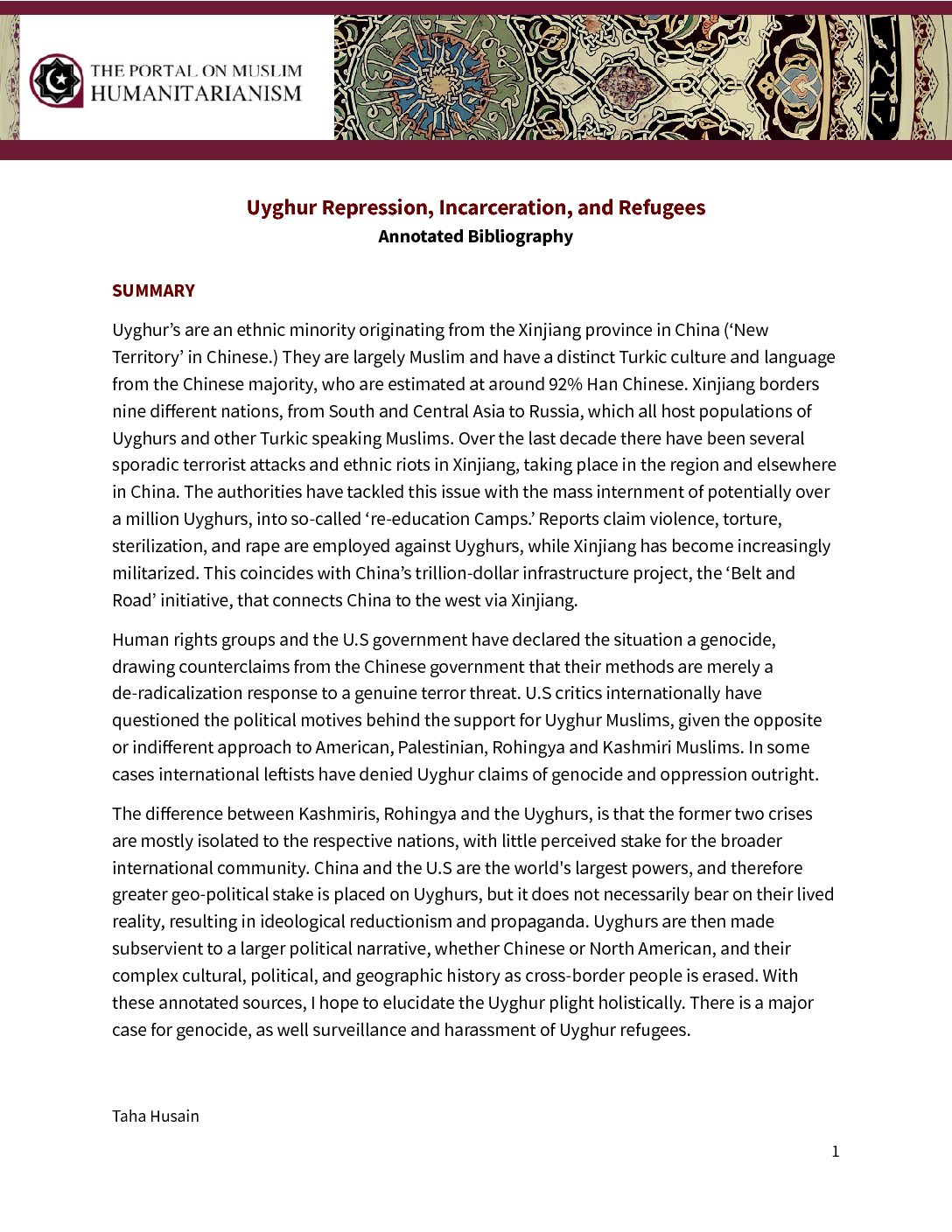
Uyghur Repression, Incarceration, and Refugees
The Chinese authorities have perpetrated the mass internment of potentially over a million Uyghurs, into so-called ‘re-education Camps.’ Reports claim violence, torture, sterilization, and rape are employed against Uyghurs, while Xinjiang has become increasingly militarized. This coincides with China’s trillion-dollar infrastructure project, the ‘Belt and Road’ initiative, that connects China to the west via Xinjiang. Simultaneously, Uyghurs are often made subservient to a larger political narrative, whether Chinese or North American, and their complex cultural, political, and geographic history as cross-border people is erased. With these annotated sources, I hope to elucidate the Uyghur plight holistically.
Rohingya Refugees
The Rohingya refugees have faced persecution and discrimination for decades in Myanmar, and Rohingya persons have struggled and sought safety before too. Humanitarian aid agencies have tried to center cultural context and environmental conscientiousness in developing response plans. They have also provided ongoing studies and statistics to help drive funding toward this crisis. This annotated bibliography sheds light on the history and current situation of Rohingya forced migrants.
Forced Migration
This annotated bibliography seeks to bridge recognition and understanding of the Muslim humanitarian sector which is playing a large role in humanitarian aid for forced migrants but marginalized from mainstream conversation.
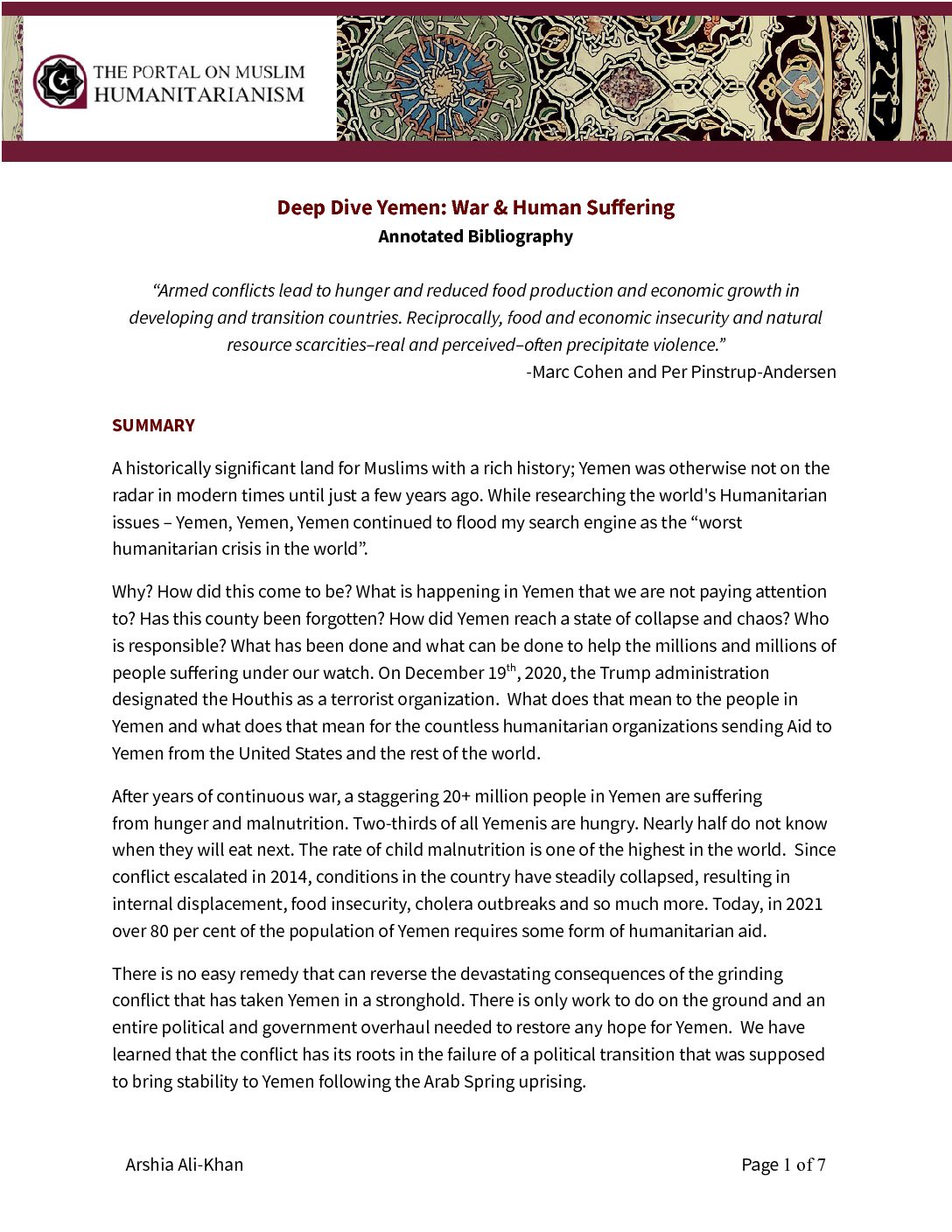
Deep Dive Yemen: War & Human Suffering
Today, in 2021 over 80 per cent of the population of Yemen requires some form of humanitarian aid. There is no easy remedy that can reverse the devastating consequences of the grinding conflict that has taken Yemen in a stronghold. Let’s take a deep dive to see what the experts are saying about Yemen and the war that has led to unrelenting human suffering and has given Yemen the title of the worst humanitarian crisis in the world.
Research from Friends of Muslim Humanitarianism
Through the following collection of resources, you can get a glimpse of the role of Muslim Humanitarianism in addressing issues such as forced migration. The knowledge gained is meant to inform how stakeholders from the Global North can partner with and amplify the work of Muslim NGOs.

The Muslim Humanitarian Sector: The State of Research
The Muslim Humanitarian Sector policy brief provides an expanded discussion on the need for ongoing research about Muslim aid and development actors documented in the report The Muslim Humanitarian Sector: A Review for Policy Makers and NGO Practitioners (British Council, 2017).
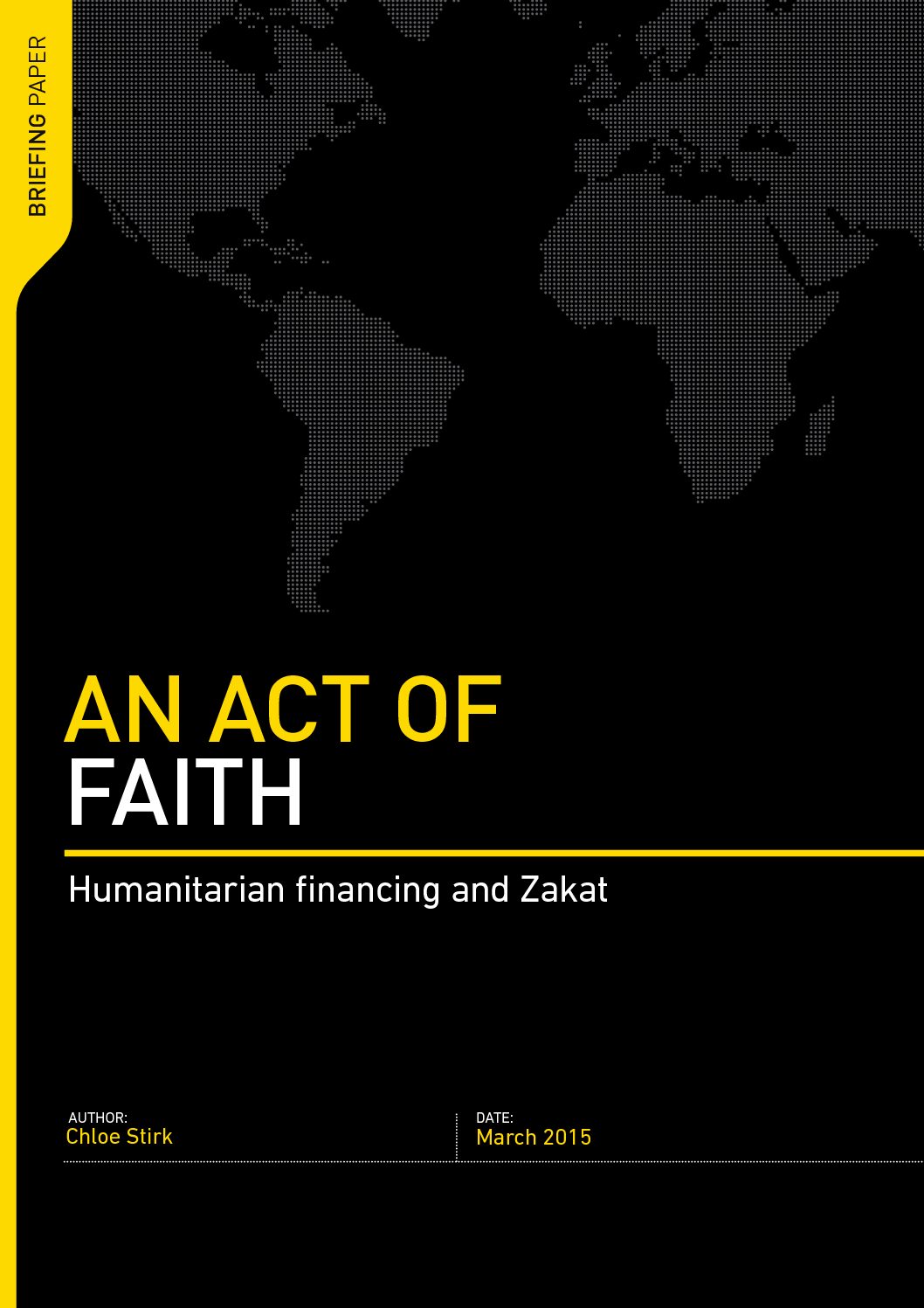
An Act of Faith: Humanitarian Financing and Zakat
The aim of this report is to shed some light on the purpose, scale and potential of Zakat for financing humanitarian response. In the absence of reliable or readily available data on Zakat mobilised globally, the report draws on evidence gathered through case studies and existing research to provide an indication of the scale of Zakat’s value and its potential for humanitarian response. It outlines some of the key barriers to increasing humanitarian funding available through Zakat and to improving the way in which it is channelled to support the humanitarian response. It also offers some recommendations for humanitarian donors and agencies, and those responsible for collecting and distributing Zakat, to consider in overcoming these barriers.

Introduction: Muslim Humanitarianism #MUHUM
From this introductory post in Allegra Lab’s interdisciplinary blog series entitled, “Muslim Humanitarianism” curated by the Graduate Institute of Geneva’s Till Mostowlansky in 2019, we are introduced to the range and breadth of theoretical and methodological approaches used in the study of humanitarianism in Muslim contexts. The full thematic thread facilitates conversation between anthropologists and historians working on a range of Muslim settings who explore the very possibility of Muslim humanitarianism, from theoretical and methodological perspectives.

